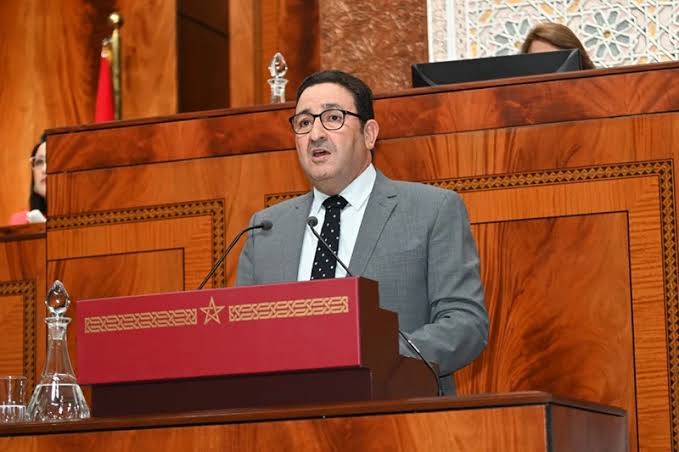Morocco moves to reverse drastic depletion of maritime fleet

By Abbas Nazil
Morocco’s once-thriving maritime transport fleet has dwindled to just 17 ships, marking a steep decline from its peak of around 70 vessels during the 1960s and 1970s.
This alarming revelation was made by the country’s Minister of Transport and Logistics, Abdessamad Kayouh, during a recent parliamentary session, where he confirmed that most of the remaining vessels are now owned by foreign operators.
Addressing lawmakers during the oral questions session at the House of Representatives, Kayouh described the situation as critical and emphasized the need for immediate intervention.
In response to the crisis, and following directives from King Mohammed VI’s speech commemorating the 48th anniversary of the Green March, the ministry has launched a comprehensive strategy to restore the nation’s maritime capabilities and reinforce Morocco’s logistical sovereignty.
The government’s revival initiative involves a multi-sectoral steering committee composed of key ministries, including those of Equipment and Water, Industry and Trade, Energy Transition, Finance, Interior, and Investment.
These agencies will jointly develop a roadmap that not only rejuvenates the domestic fleet but also supports the efficient movement of Moroccan citizens and enhances national trade efficiency.
Kayouh confirmed that the technical study underpinning this strategy is already underway and will be completed within a month.
The findings will be made public to inform the development of a structured action plan for upgrading the maritime sector.
Abderrahman El Amri, a member of the National Rally of Independents (RNI), supported the minister’s claims and provided further context.
He recalled that Morocco’s commercial fleet comprised 73 ships in the 1980s before plunging to just 11 by 2020, primarily due to debt accumulation among maritime companies.
El Amri lamented that only 5 percent of Morocco’s foreign trade currently moves through Moroccan-owned vessels, which he deemed a major strategic vulnerability.
He emphasized that maritime connectivity is central to Morocco’s success in initiatives like the Atlantic Strategy championed by the king, and vital for strengthening economic and political ties with coastal African nations.
In preparation for Operation Marhaba 2025, Kayouh also addressed efforts to ease maritime travel costs for Moroccans living abroad.
The government plans to mobilize 29 vessels with a combined weekly capacity of 500,000 passengers and 130,000 vehicles.
These will operate across 13 maritime routes, totaling 7.5 million passengers, 2 million vehicles, and 7,800 weekly trips during the peak season.
On the aviation front, the ministry has approved operations by 59 airlines, facilitating approximately 2,235 flights between Moroccan and 141 international airports to accommodate summer travel and diaspora mobility.
The decline of the national maritime fleet is not just a transportation concern, but a broader issue of economic resilience and sovereignty.
As Morocco positions itself as a regional trade and logistics hub, especially in the Atlantic African region, enhancing maritime governance and fleet capacity has become imperative.
